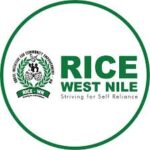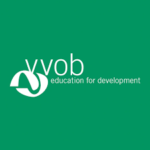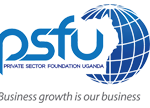Job Description
The International Rescue Committee (IRC) is one of the world’s leading crisis response agencies, providing life-saving assistance and supporting recovery and reconstruction for people affected by war and natural disasters. Active in public health, education, livelihoods, women’s empowerment, youth development, and protection and promotion of rights, IRC assists people from harm to home.
The IRC has been working in Uganda since 1998 supporting refugees, vulnerable host communities and various institutions in the country notably the government, community-based organizations, civil society, and the private sector. Currently, the IRC in Uganda has a presence across six sub-regions and six refugee settlements, implementing programming in the sectors of health, protection, and rule of law (PRoL), women’s protection and empowerment (WPE), economic recovery and development (ERD), education and livelihoods. IRC Uganda also implements cross-cutting programming focused on systems strengthening and accountability to affected persons. As part of IRC Uganda’s strategic ambitions, the IRC works closely with local actors, including civil society organizations, local non-governmental organizations, local and national governments, among others, to strengthen their capacity and with intentions of transferring more resources for locally-led implementation and support to our clients.
The IRC was awarded a grant by the IKEA Foundation to implement the Refugees in East Africa: Boosting Urban Innovations for Livelihoods Development (RE: BUILD) program. The 5 years project is being implemented in Kampala and Nairobi. The IRC is the Lead Partner and works with a consortium of local and international partners to deliver the program. The Re:Build program seeks to achieve economic self-reliance and benefit from strengthened urban economic, regulatory, and social environments for urban refugees and vulnerable host residents. Further, the Re:Build aims at enabling change at varying levels, from better access to livelihoods opportunities and inclusive services within communities to improved refugee-related policies and more targeted and effective service delivery from national, regional, and global actors.
Reporting to and technically being supported by the Senior MEAL officer, the Re:Build MEAL Officer works closely with program teams to optimize monitoring capabilities and opportunities, evaluation, accountability, and learning for the Re:Build project to ensure high-quality programming for the clients we serve and to support the overall ambitions of the of IRC’s Strategy100 and the country’s strategic action plan. The MEAL Officer supervises and implements MEAL project activities working with the project staff in Kampala.
Duties & Responsibilities
Leadership and Partnership
•Support all aspects and actions of MEAL regarding the Re:Build program in Kampala to respond to program needs; foster high standards and practices for quality data collection, analysis, and reports. Enable accountability to clients, partners, and donors.
•Implement and support MEAL system and approaches in areas of expertise and foster learning.
•Represent Re:Build at meetings, forums, and other events & build partnerships within IRC and area of expertise.
•Champion access and use of data for shared learning, sound decision-making, and data-informed programmatic adaptations.
Monitoring and Evaluation
•Run the MEAL system and processes for Re:Build program in Kampala in harmony with the MEAL Country and Global Strategies throughout the project.
•Collaborate with MEAL and non-MEAL staff to ensure that data is collected, compiled, checked for its quality and completeness in compliance with IRC and donors’ standards for data quality.
•Document and share learning, evidence, and data from previous projects to inform project proposal design.
•Implement M&E/MEAL plans, revise (digital) data collection tools, follow-up on processes for online data management, quality checks, and audits, and updating of data visualization.
•Undertake regular analysis of monitoring data and work closely with program officers and managers to facilitate decision-making for real-time program adaptation.
•Produce quality reports and updating dashboards with key findings that foster learning and decision-making and share in project cycle management meetings and team meetings.
•Identify, document, and share client feedback to improve services and results for our clients.
•Support deployment of surveys such as baseline and end line, and the commission of evaluations in coordination with colleagues and partners.
•Support the use of standard mobile data technology and online dashboard to enhance timeliness and quality of data collection, analysis, and visualization.
•Join and contribute to IRC’s effort in meeting its internal and external accountability commitments through the implementation of sound accountability, client feedback, and response mechanisms.
Accountability and Learning.
Accountability
•In close collaboration with CRA manager, CRA officer and the project team, support the documentation of client feedback and follow up on issues raised by clients to close the feedback loop.
• Maintain an updated Client feedback database through routine entry of feedback data into the online client Feedback Registry (CFR).
• Conduct analysis of client feedback data and share monthly reports with program team in coordination with the MEAL manager to inform strategic and programmatic decisions and course correction.
• Lead onsite discussions on development and implementation of action plans resulting from the review and analysis of client feedback data.
• Conduct capacity building of project team including training, mentorship, and onsite support on client responsiveness and accountability.
• Support development of Client Responsiveness and Accountability information sharing materials/briefs, posters and brochures, and dissemination to relevant stakeholders, partners, and Clients.
Learning
•Document and share learning – ensure requirements, lessons learned, data trends and best practices for products, events, and other knowledge management activities are clearly documented and shared on a regular basis (at least quarterly), this is through data collection and sharing.
•Build capacity of MEAL assistants and Program Assistants to generate data and knowledge products.
Human Resources
•As and when needed, coordinate, lead, mentor data collectors to foster timely and high-quality achievement, and an inclusive and respectful team climate.
•Participate in the recruitment and onboarding of data collectors / enumerators.
Qualifications
•A technical degree or equivalent – additional relevant work experience may substitute for education.
•A University degree in a relevant field (such as: statistics & data management, social science, public health, development economics, or a related subject area)
•A Minimum 3 years of working experience in Monitoring, Evaluation, Accountability and Learning-related functions.
•Possess basic technical knowledge of M&E approaches and techniques in some or all of the following areas: Outputs, Outcome monitoring, Logical frameworks, Data collection, Basic data analysis, Accountability, Client feedback mechanisms;
•Good computer skills in MS Office, especially Excel; and Word – with experience in writing reports;
•Technical skills in setting up quality MEAL processes and creating logical frameworks and data analysis that leads to learning and action.
•Experience in conducting primary quantitative data collection and data entry;
•Proficiency and experience with mobile data collection such as Kobo, Commcare, ODK as well as proficiency with Microsoft Excel, SPSS, STATA, or other similar software. Knowledge of PowerBi, and GIS software tools are additional assets.
•Demonstrated analytical, systematic thinking, and problem-solving skills.
•Proven ability to transfer knowledge to diverse audiences through training, mentoring, and other formal and non-formal methods together with presentation and reporting skills are a strong asset.
•Confirmed ability to lead, mentor, and empower a small to medium professional team.
•Self-motivated with good organization, and planning skills, including prioritizing work and multi-tasking.
•A strong understanding of accountability and proven ability to build Client Feedback Systems
•Demonstratable ability to engage and build excellent working relationships with local partner organizations implementing the project is vital during project delivery.
•Fluency in English Language both written and spoken is required
•Ability to speak the local language is desired; Knowledge of other local languages is an added advantage.







